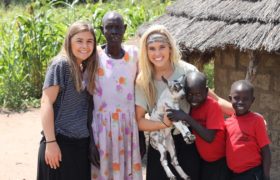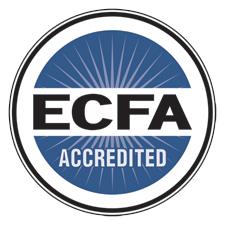Before my first trip to Uganda, I saw it as broken. You hear about Africa and all the pain and hurt and disease, and that’s what you picture. Driving through the streets that first year, it was all I saw. We anticipated it, we experienced it, and we cried at the end of every day because of it.
That was six years and six trips ago.
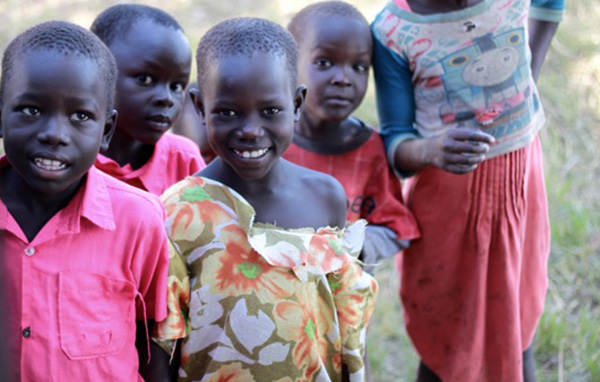
I don’t see Uganda broken like I used to. A huge part of that is because of the transformation I’ve seen through our partnership with our CarePoint. Self-sustaining projects are being implemented and there is now life in our children’s eyes. Even when I drive to the village on unpaved roads and messy streets, I don’t see it anymore. The more I go, the less I see their brokenness and the more I see ours – mine.
Some might say that after six trips and a collection of months spent there, I’ve become numb. But, I’m beginning to think there’s more to it than that. My heart now aches more for the country I return home to than the one I return from.
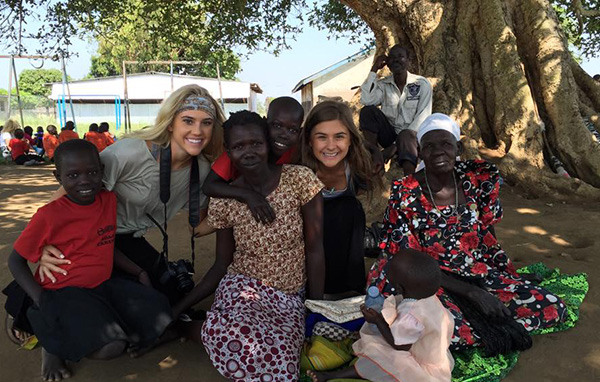
Don’t get me wrong, I love my own country and the freedom we have here – the vast differences and variety we have, but I hate the waste that comes along with it. It makes me appreciate the simplicity, the resourcefulness, and the emphasis on connection and relationship that seems to be the heart-beat of Uganda.
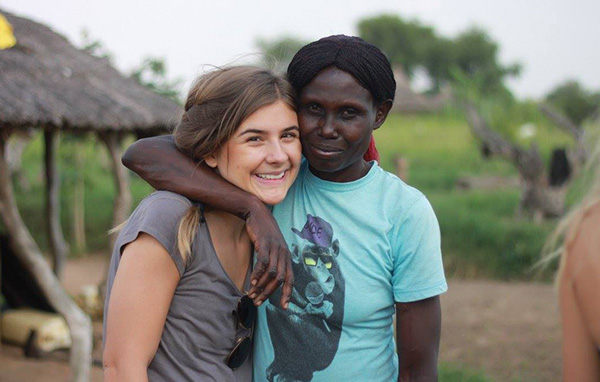
Driving through town one day, I was thinking through these very thoughts: how I no longer see brokenness and differences, and then I saw him. A man with no legs riding a hand-pedaled bike through town.
My heart broke. As though all the thoughts I had just picked up, gathered neatly, and sorted out had just fallen back to the ground and re-scattered.
It’s not fair. There’s no perfect view that packages up how to feel and how to help and how to solve these problems.
What I’m realizing is this: no way is right; no culture is ideal. We’re all broken, we all just have a little harder time seeing our own brokenness. It’s the classic example of seeing the speck in others more than the log in our own eyes. Why is it so much more difficult?
As my brain tries to make sense of it all, how to help and how to change things for my friends in Uganda and lives in my own country, I can only come to one conclusion.
We argue over philosophies and ideas, but when I look back, I realize relationship is what brings true change. Time and depth and conversations lead to understanding and connection and transformation.
This summer in Uganda, as I read Psalms 13 to myself, my new friend asked me to read it out loud to her. We are two people from different cultures, different backgrounds, and with completely different circumstances. But as I read David’s words out loud, they resonated with both of us:
O Lord, how long will you forget me? Forever?
How long will you look the other way?
How long must I struggle with anguish in my soul,
with sorrow in my heart every day?
Forgotten. We connected over this word. Not because of a lack of material items, but because of what we both lacked in relationship.
What led us to these words was a season where the God we knew felt silent to us. As we dared to admit it out loud, we realized we weren’t the only one. This moved us closer to the other side:
But I trust in your unfailing love.
I will rejoice because you have rescued me.
I will sing to the Lord
because he is good to me.
We all have the same internal problems and challenges. Crushed dreams, fears, loved ones who hurt us – we’re not as different as we think.
So as I begin to make sense of six years’ worth of experiences with my friends in Uganda, I’ve learned that in reality none of us have the ideal.
The ideal won’t come in this life. It won’t come from one more debate, argument, or discussion. There’s no singular response that will figure everything out. But we can form relationships with those around us. These connections – this community we can build – has the power to bring us closer to what we’re all searching for.
And these people who I meet, these people who I get to know and begin to see as similar to myself, will remind me that He is good. In the best of times, the worst of times – He is still good – to me.

